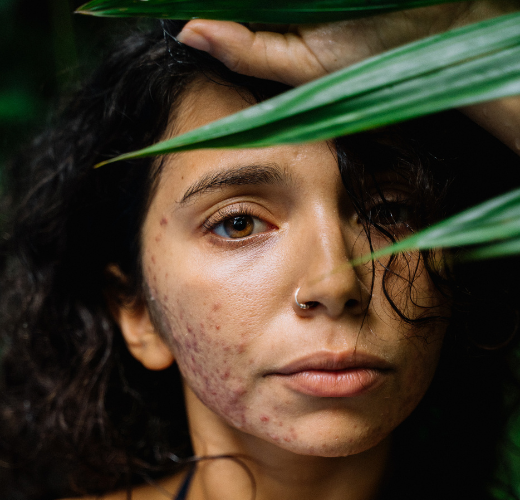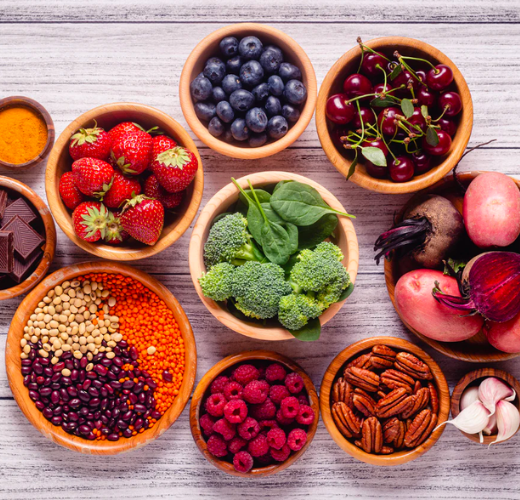Avoid these if you struggle with acne

Many people still (mistakenly) believe that acne is due to lack of hygiene, so it’s worth reiterating that breakouts are the result of clogged pores, bacteria and excess oil (which may be hormonally-related). However, research in recent years has also shown that diet can play a role in acne as well.
If you still think chocolate and greasy foods like French fries cause breakouts, science has actually proven that there is no causal relationship between these foods and acne. But research has identified several other foods, vitamins and minerals that are connected to blemishes.
Dairy
Without getting too scientific, several studies have indicated that the consumption of milk, yogurt and cheese is linked to increased acne in adolescents, teenagers and adults. It is believed that hormones and other bioactive compounds found in milk products (especially skim milk) are responsible for an increased risk of acne due to their effects on sebaceous oil-producing glands. (Check out more advice from Dr. Boakye here.)
High-glycemic foods
These are the foods that cause rapid blood-sugar spikes, and include white (and non-whole grain whole wheat) bread, pasta, white rice, pastries and sweets, potatoes (fried or not), chips and sweetened dairy products like yogurt. This study showed that a low glycemic index diet improves acne severity in addition to lowering BMI and insulin sensitivity in diabetics. The study regarding dairy’s effects on oil glands cited above also found that a combination of milk-based products and high-glycemic foods has a more significant impact on acne than either of these two factors alone.
Over-processed foods
Many nutritionists say that if your grandparents (or great-grandparents) couldn’t identify a food like Twinkies or Spaghetti-O’s, your body probably can’t either. Another sign of over-processed foods is being unable to decipher their ingredient lists. Needless to say, these “engineered” foods affect our bodies from the inside out, and are likely to impact the health and appearance of the skin.
Whey protein
Whey is one of the main proteins found in dairy products, but it can often be found on its own in protein powders, protein bars, salad dressings, baked goods (such as crackers, muffins and bread) and more. Although often touted as a beneficial ingredient for active women and men who want to build muscle mass, this protein (whether consumed as part of dairy products or as a supplement) can contribute to acne.
Vitamin B6 and B12
When you see “vitamin” you probably automatically think this is a beneficial supplement, however B6 and B12 have been correlated with acne. If you avoid these stand-alone supplements and stick to whole, unprocessed, non-fortified foods, you shouldn’t have to worry about them making breakouts worse.
Iodine
Iodine is an essential mineral that is found in fish, shellfish, seaweed, “iodized” table salt, dairy and animal protein. Although it has been shown to play a role in healthy thyroid function, some people’ skin can react in the form of breakouts (especially when ingested from a dairy-based source).
When you put all of these potential acne triggers together, all signs point to a plant-based, whole-foods diet with limited dairy and meat intake if a clear complexion is your goal. Even if you’re not ready to go “all in,” simply being mindful of what you’re putting into your body and the effects that these foods and supplements can have on your skin can go a long way—especially in terms of acne.


